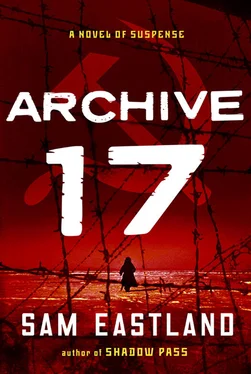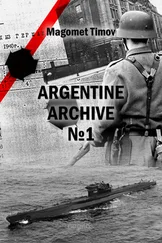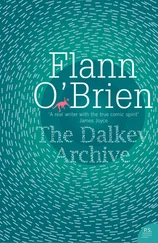Sam Eastland - Archive 17
Здесь есть возможность читать онлайн «Sam Eastland - Archive 17» весь текст электронной книги совершенно бесплатно (целиком полную версию без сокращений). В некоторых случаях можно слушать аудио, скачать через торрент в формате fb2 и присутствует краткое содержание. Жанр: Исторический детектив, на английском языке. Описание произведения, (предисловие) а так же отзывы посетителей доступны на портале библиотеки ЛибКат.
- Название:Archive 17
- Автор:
- Жанр:
- Год:неизвестен
- ISBN:нет данных
- Рейтинг книги:3 / 5. Голосов: 1
-
Избранное:Добавить в избранное
- Отзывы:
-
Ваша оценка:
- 60
- 1
- 2
- 3
- 4
- 5
Archive 17: краткое содержание, описание и аннотация
Предлагаем к чтению аннотацию, описание, краткое содержание или предисловие (зависит от того, что написал сам автор книги «Archive 17»). Если вы не нашли необходимую информацию о книге — напишите в комментариях, мы постараемся отыскать её.
Archive 17 — читать онлайн бесплатно полную книгу (весь текст) целиком
Ниже представлен текст книги, разбитый по страницам. Система сохранения места последней прочитанной страницы, позволяет с удобством читать онлайн бесплатно книгу «Archive 17», без необходимости каждый раз заново искать на чём Вы остановились. Поставьте закладку, и сможете в любой момент перейти на страницу, на которой закончили чтение.
Интервал:
Закладка:
“Listen to me carefully.” Stalin sounded eerily calm. “I want you to take out the file of Inspector Pekkala.”
Klenovkin had expected Stalin to rage at him, but the softness in his leader’s voice caught him by surprise. In his desperation, he took this as a sign that he might still come through unscathed. Sliding open his desk drawer, he removed Pekkala’s file. “I have it here-Prisoner 4745.”
“Now I want you to take out his information sheet.”
“I’ve got it. And what next, Comrade Stalin?”
“I want you to destroy it.”
“Destroy it?” he croaked. “But why?”
“Because as far as the rest of the world is concerned, Inspector Pekkala was never there”-Stalin’s voice was rising now-“and I will not have the Kremlin embroiled in some Dalstroy inquiry into your failure to carry out your duties! Now burn the sheet, and this time there will be no delay.”
Stunned, Klenovkin took out his cigarette lighter and set fire to the corner of the paper. The document burned quickly. Soon all that remained was a fragile curl of ash, which Klenovkin dropped into the green metal garbage can beside his desk. “It’s done,” he said.
“Good! Now-”
There was a sharp click. The line from Borodok went dead.
“Poskrebyshev,” said Stalin.
Poskrebyshev held his breath and said nothing.
“Poskrebyshev, I know you are listening.”
Clumsily, Poskrebyshev snatched up the receiver and fumbled as he pressed it against his ear. “Yes, Comrade Stalin!”
“Get me Major Kirov.”
Klenovkin lay on the floor of his study, eyes wide and staring at the ceiling. Clutched in his fist was a pistol, smoke still leaking from the barrel. A spray of blood peppered the wall. Beneath it lay the back of Klenovkin’s skull, torn loose by the impact of the bullet and looking almost exactly like the handsome onyx ashtray on his desk, presented to him by Dalstroy for his fifteen years of loyal service.
As Pekkala walked around the clearing, the circulation slowly returned to his frozen legs and arms. At the edge of the trees, he came across some charred wooden beams. Next he kicked up some old glass jars, twisted by the fire which had consumed the cabin that once stood here.
In that moment, he realized that these were the ruins of his own cabin, where he had lived for years as a tree-marker for the Borodok lumber operation.
These melted shards of glass had once been part of a window in his cabin. Lacking other means, he had collected pickle jars left behind by the logging crews, stacked them on their sides with the mouths facing inward, and then caulked the gaps with moss.
He remembered seeing the northern lights through those makeshift panes of glass; the vast curtains of green and white and pink rippling like some sea creature in the blackness of the ocean’s depths.
Where Sedov lay bleeding, Pekkala recalled lying in the shade to escape the summer heat, chewing the bitter, clover-shaped leaves of wood sorrel to slake his thirst, and how the beds of dried lichen would rustle beneath the weight of his body, with a sound like a toothless old man eating crackers.
His eyes strayed to where his storage shed had been, constructed on poles above the ground to discourage mice from devouring his meager supplies of pine nuts, sunflower seeds, and dried strips of a fish called grayling, which he sometimes caught in the streams that flowed through this valley.
In the decade since he had been here last, a number of young trees had grown around the clearing. The skeletons of brambles lay like coils of barbed wire among the puffed and blackened logs which had been a part of his home. It had taken him weeks to clear this space, and it startled him to see how thoroughly the forest had reclaimed the ground. In a few more years, there would be little to show that this place had been the center of Pekkala’s world, each tree and stone as known to him as the freckles constellationed on his arms.
On the other side of the clearing, Kolchak crouched down before Sedov. He scooped up some snow and touched it against Sedov’s lips.
“I told you it wouldn’t be long before we were living like kings,” whispered Sedov, “but I didn’t think I’d reach the Promised Land so soon.”
Kolchak did not reply. Gently, he patted Sedov’s cheek, then stood and walked away.
Tarnowski pulled him aside and, in an urgent whisper, said, “We can’t just leave him here.”
“And we can’t take him with us,” replied Kolchak. “He would only slow us down.”
“The guards from the camp will find Sedov. You don’t know what they’ll do to him.”
“It doesn’t matter what they do,” Kolchak snapped. “By the time those men get here, Sedov will be dead.”
The Ostyaks beckoned them back to the sleds.
“We must leave,” said one of them. “This is a bad place.” He pointed to the ruins of Pekkala’s cabin. “A bad place,” he repeated.
The last Pekkala saw of Sedov, he was still sitting against the tree. His head had fallen forward, chin resting on his chest. Either he was sleeping or else he was already dead.
They did not stop again until they reached the tracks, arriving at the place where the main line of the Trans-Siberian branched off towards the Borodok railhead.
Kolchak jumped down from his sled. “Now let’s gather what belongs to us and get out of here.”
Still carrying the rifle he had stolen from the camp, Tarnowski stood in the middle of the tracks. Nervously, he looked up and down the rails, which glowed like new lead in the dingy light. “It’s hard to say, Colonel.”
Kolchak joined him on the tracks. “What do you mean? You told me to bring you to the place where the railroad forked down towards the camp. Here is the fork. Now where is the gold?”
Tarnowski scratched at his face, like a man who had stepped into cobwebs. “When we came around a bend in the tracks …”
“Keep your voice down,” hissed Kolchak. “If those Ostyaks learn where you’ve hidden the gold, they’ll leave us behind and steal everything for themselves.”
From then on, the two men held a muttered conversation. “We spotted a small cliff right beside a pond,” Tarnowski continued. “We buried the crates on the other side of that pond. I thought we would be able to see it from here, but it’s been a long time, Colonel. The mind plays tricks …”
“You realize, Lieutenant Tarnowski, that we are almost certainly being followed, by men whose incentive for killing us is that they will lose their own lives if they fail. It will take time to dig up the gold, especially since the ground is frozen. After that, it’s a race for the border. I don’t need to tell you that if they catch up with us again, no one’s going to spare your life this time.”
“It can’t be far, Colonel,” Tarnowski reassured him. “If we send a sled in each direction, one of them is sure to find it. The rest of us can wait here.”
The Ostyaks watched and waited, knowing they were not trusted. The caribou, sensing hostility in the air, shifted nervously in their harnesses.
“All right,” said Kolchak. “Tell the Ostyaks what we’re going to do. I’ll go on one sled and you take the other. If you’re the one who spots the cliff, make sure you travel past it before you order the Ostyak to turn around. Otherwise, you’ll give away the location without even saying a word.”
Climbing on a sled, Kolchak set off to the west along the tracks. Tarnowski turned to the east.
The snow was still falling as they headed out.
The sleds faded into the white, as if cataracts clouded the eyes of those who watched them go.
In the compound of the Borodok camp, the body of Platov still knelt in a puddle of blood.
To Gramotin, staring down at him, the dead man looked like a Muslim kneeling on a red prayer rug.
Читать дальшеИнтервал:
Закладка:
Похожие книги на «Archive 17»
Представляем Вашему вниманию похожие книги на «Archive 17» списком для выбора. Мы отобрали схожую по названию и смыслу литературу в надежде предоставить читателям больше вариантов отыскать новые, интересные, ещё непрочитанные произведения.
Обсуждение, отзывы о книге «Archive 17» и просто собственные мнения читателей. Оставьте ваши комментарии, напишите, что Вы думаете о произведении, его смысле или главных героях. Укажите что конкретно понравилось, а что нет, и почему Вы так считаете.











